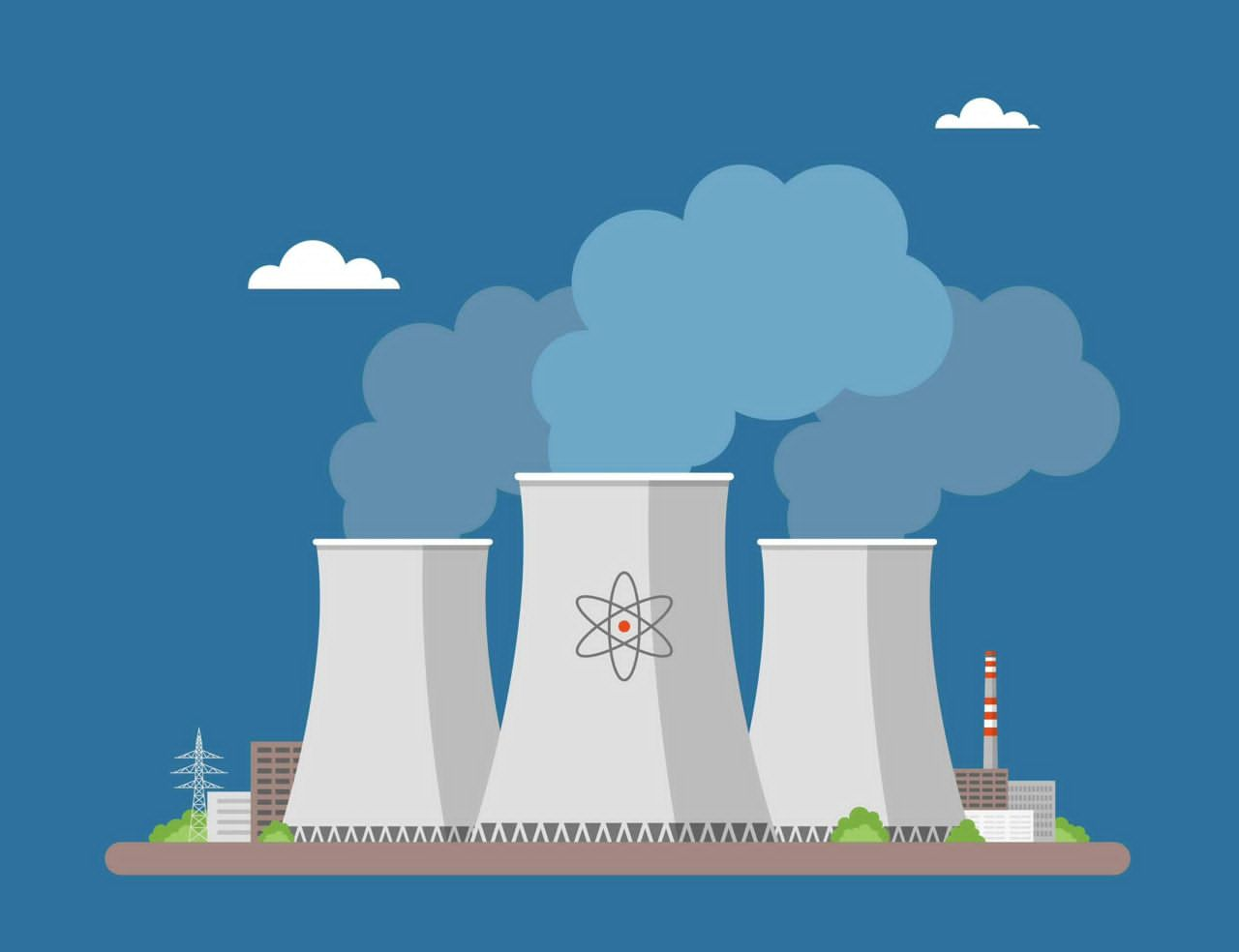Is nuclear energy the future for Africa?, by Ibrahim T. Tumsah
In the vast continent of Africa, a region rich in natural resources and diverse cultures, there lies untapped potential for harnessing a powerful source of energy that could transform the trajectory of development: Nuclear Energy. While some may raise concerns about the risks associated with nuclear power, a compelling case can be made for its adoption in Africa and especially Nigeria— provided that a comprehensive framework is established to ensure safety, sustainability, and responsible governance.
Africa stands at a crossroads, seeking viable solutions to its growing energy demands while navigating the challenges of sustainable development. In this pursuit, the potential use of nuclear energy emerges as a tantalizing option, offering a reliable and low-carbon source of power. Within Africa, Nigeria, with its abundant natural resources and ambitious development goals, holds the key to unlocking the continent’s nuclear potential.
Nigeria, often referred to as the “Giant of Africa,” boasts a population of over 200 million people and an economy that continues to grow at a steady pace. With such growth comes an ever-increasing demand for electricity, placing strain on the already existing substandard energy infrastructure. Currently, Nigeria relies heavily on fossil fuels, particularly oil and gas, which not only contribute to environmental degradation but also make the country susceptible to fluctuations in global energy prices. Embracing nuclear energy could provide a long-term and sustainable solution to these challenges.
Uranium is the primary fuel for nuclear energy and it is currently powering more than 400 reactors that make up 10% of the world’s annual electricity generation. Uranium is a key metal that has the potential to lead the global clean energy revolution.
What is uranium? you might ask, uranium is a rare, radioactive and silvery metallic natural resource found in the earths crust, it has a symbol depicted on the periodic table by the letter (U). It is the 48th most abundant element in the world. it is the second heaviest metal in terms of atomic weight, only second to plutonium. It is naturally found in large quantities in low levels within, rock, water and soil; sometimes even combined with other elements. Some of its deposits can also be found in food which make it not as harmful to us in its basic state, but it can be harmful to health when there is a radioactive reaction which causes it to decay and when these droplets mix with the air we breath— can be quite hazardous and lethal, causing sicknesses such as cancer and kidney diseases. Uranium deposits can be found in Congo, Niger, Nigeria, Namibia, South Africa and a lot of other African countries, which have untapped uranium potential.
Uranium is a very powerful mineral, it can power nuclear reactors and atomic bombs. It is also the rock that changed the world. Besides the radioactive nature of uranium, its energy density— the amount of energy it contains per unit of mass is one of its exceptional properties, making it significantly more powerful than other energy fuels. This nuclear energy offers a reliable and abundant source of electricity, which is vital for addressing Africa’s pressing energy needs.
The benefits of nuclear energy for Nigeria and Africa as a whole are significant. Firstly, nuclear power offers a clean and sustainable alternative to fossil fuels, reducing carbon emissions and combating climate change. This aligns with Nigeria’s commitment to the Paris Agreement and its efforts to transition towards a greener and more resilient future. Secondly, nuclear energy provides a stable and reliable source of electricity, ensuring consistent power supply for industries, businesses, and households. This stability can stimulate economic growth, attract investments, and create employment opportunities
In addition, as the world faces the challenges of climate change, transitioning to cleaner energy alternatives is of utmost importance. African countries have the opportunity to leapfrog the era of polluting energy sources and embrace a sustainable and environmentally friendly option. By adopting nuclear power, Africa can reduce its greenhouse gas emissions, mitigate climate change impacts, and demonstrate global leadership in the pursuit of a greener future.
Nuclear power necessitates the establishment of a transparent and accountable governance framework to address concerns regarding proliferation and misuse. The African Union, in collaboration with regional organizations, can play a pivotal role in promoting nuclear non-proliferation, safeguards, and peaceful use of nuclear energy. Strict adherence to international treaties, such as the Treaty on the Non-Proliferation of Nuclear Weapons, will be essential to foster trust and confidence among the international community.
Moreover, some might say realizing this dream of nuclear energy in Africa seems more like a pie in the sky ideal than a tangible reality. There are a lot of challenges that will need to be overcome. Financing the development of nuclear infrastructure presents a significant challenge. Nuclear power plants require substantial upfront investments, and African countries, often facing economic constraints, may find it challenging to secure the necessary funding. International cooperation, financial assistance, and public-private partnerships can help alleviate this barrier.
A robust nuclear energy sector necessitates a holistic approach to human capital development. Nigeria must prioritize education and training in nuclear sciences, engineering, and related disciplines. Collaborations with universities, research institutions, and international organizations can facilitate knowledge exchange, scholarships, and capacity-building programs. By nurturing a skilled workforce, Nigeria can unlock its own potential as a regional leader in nuclear technology and expertise.
As countries look toward clean and secure energy sources for the future, the outlook for nuclear power and uranium has turned brighter. The future of nuclear energy in Africa holds tremendous promise, particularly for a nation like Nigeria. By embracing nuclear power, Nigeria can diversify its energy mix, reduce greenhouse gas emissions, and meet the growing electricity demands of its population. However, achieving this goal requires careful planning, technological readiness, strong safety measures, public acceptance, and strategic partnerships. As Nigeria takes bold steps towards a sustainable future, the journey towards nuclear energy presents an opportunity to secure a brighter and more prosperous Africa for generations to come.
Follow the Neptune Prime channel on WhatsApp:
Do you have breaking news, interview request, opinion, suggestion, or want your event covered? Email us at neptuneprime2233@gmail.com





